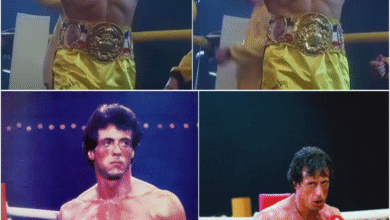How Marilyn Monroe Helped Launch Ella Fitzgerald’s Career
OPINION: This article may contain commentary which reflects the author's opinion.
Marilyn Monroe is often remembered as Hollywood’s ultimate blonde bombshell—a global icon of beauty and glamour. But beneath the glitz and myth, Monroe was a woman of depth, intellect, and compassion, whose kindness extended far beyond the silver screen. One of the most remarkable examples of this side of Monroe was her pivotal role in supporting the legendary jazz singer Ella Fitzgerald’s career.
In the racially segregated 1950s, America’s entertainment landscape was rife with discrimination. For Black artists like Ella Fitzgerald, gaining access to premier venues was a daunting challenge. One such hotspot was the Mocambo, a swanky nightclub on Los Angeles’s Sunset Strip where Hollywood’s elite—Clark Gable, Humphrey Bogart, Lana Turner, Sophia Loren, and others—rubbed shoulders. A performance at the Mocambo was a career-making opportunity, yet the club notoriously snubbed jazz musicians, especially Black performers.
Fitzgerald, a towering figure in jazz, desperately wanted to play the Mocambo, but racial prejudice barred her from the stage. Enter Marilyn Monroe. Growing weary of Hollywood’s vanity, Monroe sought refuge and inspiration in New York City’s jazz scene. There, she fell in love with Fitzgerald’s voice, recognizing her as the extraordinary talent she was.
Learning of Fitzgerald’s exclusion from the Mocambo, Monroe took action. In her own words, Fitzgerald later said in 1972, “I owe Marilyn Monroe a real debt.” Monroe personally called the Mocambo’s owner and demanded that Fitzgerald be booked immediately. To sweeten the deal, Monroe promised to attend every performance, ensuring the club’s prestige.
“She would take a front table every night,” Fitzgerald recalled. Monroe’s star power was undeniable—where she went, the world followed. Thanks to Monroe’s advocacy, Fitzgerald’s booking at the Mocambo broke down barriers. Monroe’s steadfast support went beyond mere attendance; she ensured Fitzgerald was treated with the respect she deserved.
The impact was profound. “The press went overboard,” Fitzgerald said, “and after that, I never had to play a small jazz club again.” Monroe’s friendship and influence transformed Fitzgerald’s career trajectory, enabling her to rise beyond the constraints imposed by racism and segregation.
Marilyn Monroe’s intervention is a powerful reminder that her legacy extends well beyond her film roles and iconic image. It highlights a rare and generous use of celebrity power—to uplift and champion fellow artists facing systemic barriers. Through her support, Monroe helped one of the greatest voices in music history find the spotlight she richly deserved.
If you want, I can also prepare a shorter social media summary or a feature focusing on Monroe’s lesser-known philanthropic efforts.



